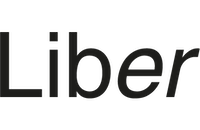Inimitably good slogan, once, from Heineken: "Refreshes the parts other beers cannot reach.
The same can be said about Allegri's Miserere, a setting of Psalm 51 that I heartily recommend especially in these times. Because it can take you where linear reasoning cannot: to the realization that only inner surrender, brings peace.
Inner surrender of what to whom?
Psalm 51 makes a valiant attempt to say something about it. Here speaks a poet who is at odds with himself. Between the lines you hear: 'I have tried to solve my problems this way, and that way, by this way and that way, but no matter what I do, it does not help. I keep suffering under myself'.
And precisely because the psalmist cannot put his finger on what torments him, he concludes, he prays, he "understands": "then my salvation must come from that dimension of life to which I cannot put my finger. In other words, he abandons any pretense of his own knowing.
And what happens? Out of the blue, he regains a sense of it, of life. He sees a future again. But not because he has abandoned his view of his past, but the hold he derived from his view of himself. He has begun to think differently not about the problems he has, but about the person he is.
Demystified, Psalm 51 says: the same "I" that lands us in the swamp cannot, by definition, also free us from it.
The genius of Allegri: how he makes this crushingly basic insight audible. With notes, the composer tells what the poet uses words for: the key to glory? Simplicity. Another way of thinking about the thinker we imagine ourselves to be. Hence the same repetition of the same notes over and over again. Because every person keeps falling into the same trap. Prefers the struggle with his complexity to the mere surrender to the recognition of having once again put on too big a pair of pants.
'How did you come by it,' I am sometimes asked, 'at that Liber do-it-yourself coaching methodology?' 'Psalm 51,' I say. 'Psalm 51 and Allegri.' What the poet tells the reader, the composer makes the listener hear, Liber makes the practitioner experience.
